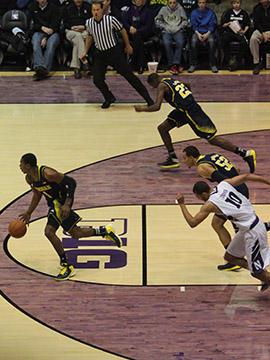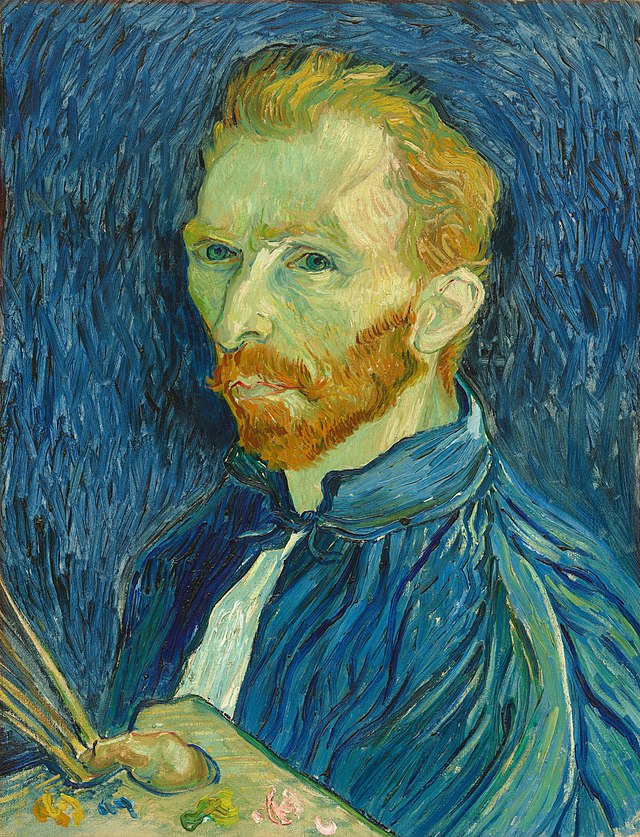How to develop Anticipation Skills

What happens next?
The world of sports is teeming with a myriad of physical and mental talents. Among these, one invaluable trait shared by the greatest athletes is the ability to anticipate future outcomes—an aptitude to predict what’s coming next and respond accordingly.
Much like the legendary hockey player Wayne Gretzky, who talked about “skating to where the puck would be,” basketball players can use anticipation to always be “one step ahead.”
The beauty of anticipation lies in its two-fold benefits. Firstly, it provides a significant edge during a game, allowing players to read the opponent’s moves, adapt, and position themselves better. Secondly, it empowers the mental fortitude of an athlete, fostering a winning mindset and confidence that fuels success on and off the court.
How to see the future…
Know where to look
In basketball, an opponent’s eyes often give away the direction of their next action without them even knowing they are doing it. Face-guarding is a good example of this. By tracking the eyes of your opponent, you can often see when the ball is coming toward them since most people track the ball with their eyes and follow the arc of the ball. In other words, they look UP when the ball is coming. This is the point when you need to take action, turn toward the incoming ball and intercept the pass.
Eyes and Feet:
Know what to look for.
Aside from your opponent’s eyes, you can also get information based on their footwork (where are going to go) as well as the way they handle the ball (is it on the right or left side?). These hints can tell you what they are most likely going to do.
Take Action:
Seeing is worthless without Action.
Knowing what someone will do is worthless without doing something about it. You could challenge the movement or intercept the pass. In any case, if you anticipate what’s going to happen and do nothing, it’s effectively the same as not knowing.
Observe at all times:
Practice observation skills.
When you are sitting on the bench, pay close attention to players that you may encounter when you get in the game. How do they move? Do they have any habits that you can manipulate so they “give” you an advantage?
You can improve your “observation skills” in practice whether you are scrimmaging or just doing drills. Instead of just standing around between your turns doing drills, focus on one player on your team and see if you can predict what they will do next. What’s their favorite move? How could you predict when they will use it ? (Or what could you do to cause them to use it?)
Observation is like many other skills… it gets better the more you use it.
Anticipation – Timing and Rhythm:
When will it happen?
As you observe your target opponent, take a mental note of their timing and the rhythm that they use when performing “their move”. As a defender, if you can disrupt their rhythm, it’s very likely that they will commit an offensive foul or at least be uncomfortable if they force up a shot. Pay attention to what they do over and over again. Do they always spin a certain way when they dribble into traffic? Do they always cross over to their other hand when you challenge them at a certain spot on the floor?
Video examples of defensive anticipation…
Link to Youtube video… https://www.youtube.com/watch?v=Bz_GyEf9eBM
Rules and Mechanics:
The ref’s can help you win!
The power of anticipation is also closely linked with a profound understanding of the game’s rules and mechanics. By mastering the fundamentals of basketball, players can better predict the game’s flow, ascertaining when to make critical moves such as stealing a pass, blocking a shot, or positioning for a rebound.
For example, does your opponent always take the ball out of bounds the same way? With the same type of pass to the same person? Can you position yourself such that they do not see you as a threat but you can still steal the ball?
Drills that simulate particular situations such as sideline out of bounds, baseline out of bounds or a trapping defense are another effective way to nurture your anticipation skills. These practice drills, mirroring actual game situations, can help athletes predict outcomes and react swiftly under pressure. Simulations also encourage players to utilize their instinct, another critical aspect of anticipation. Once you know where the next pass is going to go, it’s a relatively simple task to figure out a way to steal the ball.
Be Ready:
Are You Physically Prepared
Achieving and maintaining physical fitness plays an underrated role in fostering anticipation. The faster and more agile a player, the better they can implement their anticipatory decisions. High-level fitness allows a more efficient execution of anticipated moves, creating more opportunities for scoring and defending. Are you ready to act on the future actions that you see developing?
Lastly, anticipation also hinges on mental strength. As you know if you follow this blog on a regular basis or have heard Coach Wheeler speak at your basketball camp, developing a winning mindset demands resilience, focus, and confidence. It requires the willpower to take calculated risks based on predicted outcomes plus the knowledge that your team will back you up when the risky action doesn’t pay off. And it’s this mindset that often distinguishes an exceptional player from a good one… and a good team from a great one.
Anticipation is more than just a skill; it’s a potent combination of observation, understanding, practice, physical fitness, and a winning mindset. It’s the ability to see the future in the present, to analyze and execute with precision. For the aspiring basketball player, cultivating anticipation isn’t just about being one step ahead, it’s about establishing a foundation for success, equipping oneself with a competitive edge that transcends the boundaries of the court.
Finally…
Remember, basketball, like life, is a game of anticipation. It’s about expecting the unexpected, pre-empting the next move, and consistently striving for excellence. As Wayne Gretzky aptly stated, “skate to where the puck is going to be, not where it has been.” Anticipate your future, and be prepared to meet it head-on.
Some Books Related to this article…
“Anticipate: The Art of Leading by Looking Ahead” by Rob-Jan de Jong
This book provides insight into how leaders can adopt forward-thinking approaches to anticipate the future and make effective decisions, a concept that can be applied to anticipating in sports.
“Mind Gym: An Athlete’s Guide to Inner Excellence” by Gary Mack and David Casstevens
Offers practical psychological strategies to boost mental stamina and enhance athletic performance. It dives into the importance of mental fortitude and visualization, essential for athletes building anticipation skills.
“Thinking Basketball” by Ben Taylor
A guide that challenges traditional basketball wisdom, prompting players to think about the game more deeply. It emphasizes the role of game intelligence in basketball.
“Relentless: From Good to Great to Unstoppable” by Tim S. Grover
Authored by the legendary trainer of athletes like Michael Jordan and Kobe Bryant, this book explores what it takes to excel in sports, emphasizing mental fortitude and a winning mindset.
“The Champion’s Mind: How Great Athletes Think, Train, and Thrive” by Jim Afremow
This book explores how the mental game influences athletic performance. It emphasizes the importance of anticipation, resilience, and a winning mindset.
Inspirational Quotes related to this article…
“The key to the future lies in the ability to anticipate it.” – Deepak Chopra
“What counts isn’t the frame, it’s what you put in it.” – Otto Preminger, highlighting the importance of content (or action) over structure (or planning).
“The future belongs to those who prepare for it today.” – Malcolm X
“I’ve missed more than 9000 shots in my career. I’ve lost almost 300 games. 26 times, I’ve been trusted to take the game-winning shot and missed. I’ve failed over and over and over again in my life. And that is why I succeed.” – Michael Jordan, emphasizing resilience.
“You have to expect things of yourself before you can do them.” – Michael Jordan, referring to the power of visualization.
“Winning takes precedence over all. There’s no gray area. No almosts.” – Kobe Bryant
“Excellence is not a singular act, but a habit. You are what you repeatedly do.” – Aristotle (via “The Big Aristotle”, Shaquille O’Neal)
“Just play. Have fun. Enjoy the game.” – Michael Jordan, encouraging athletes to love the game and find joy in playing.
“The best way to predict your future is to create it.” – Peter Drucker
“If you want to look good in front of thousands, you have to outwork thousands in front of nobody.” – Damian Lillard, discussing the value of practice.






